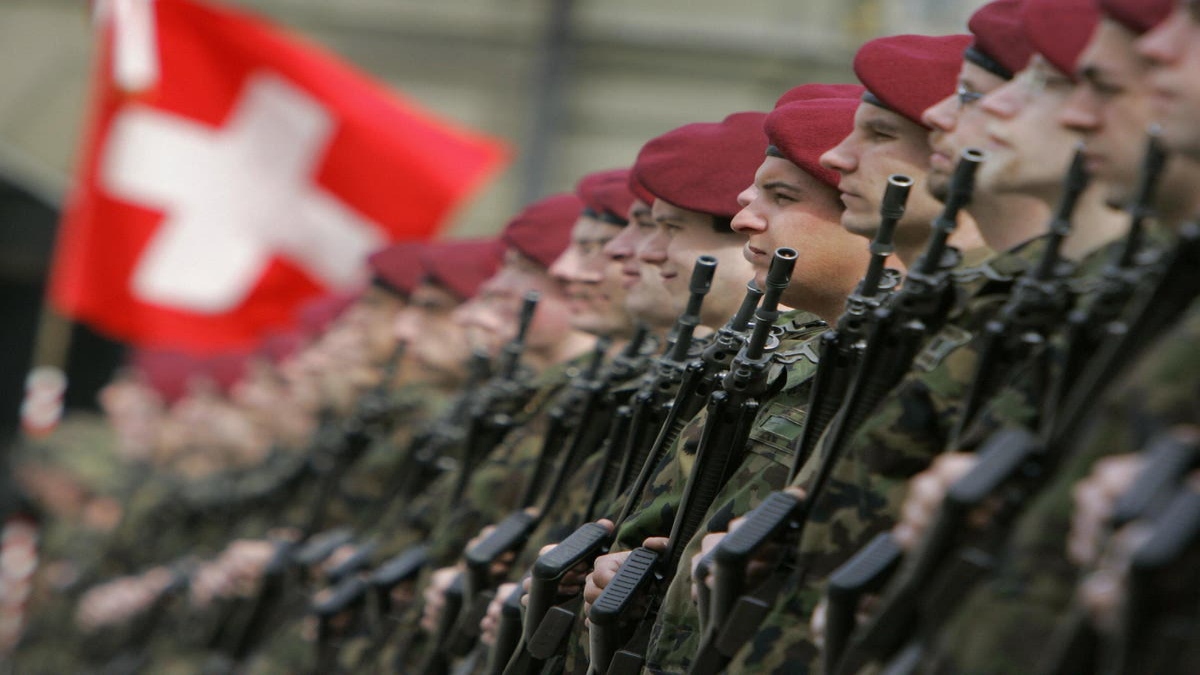While Switzerland has maintained neutrality since 1515, a study committee recommended the country’s government work on a ‘common defence capability’ with the EU and NATO
read more
Amid the growing animosities between Russia and Europe, Switzerland is rethinking its centuries-long neutral stance over global conflicts. In a bombshell report published on Thursday, a group of experts urged the government to rethink its defence stance. While the country has maintained neutrality since 1515, the group encouraged the government to work on a “common defence capability” with the EU and NATO.
“Since the Russian attack on Ukraine, neutrality has once again become the subject of political debate, both at home and abroad. Pressure on Switzerland to clarify its position is growing,” read the
report put forward by the country’s study commission.
The group noted that Switzerland’s neutrality has also negatively impacted the arms sales of the country. It also puts the European nation in a complicated spot to defend itself while being surrounded by two parties to which it doesn’t belong.
The recommendations came months after Russia’s growing aggression in Ukraine prompted Sweden and Finland to ditch their neutrality and join the North Atlantic Treaty Organisation (NATO). The experts involved in the report included diplomats, senior officials, a former head of the Swiss army and Wolfgang Ischinger, the former director of the Munich Security Conference. Here’s a look at some of its recommendations.
Allow arms exports
The group mentioned that Switzerland’s arms exports fell last year by 27 per cent to less than 700 million Swiss francs (€746 million) compared to 2022. One of the major reasons for the decline was the country’s strict arms export policies.
The country bans the sale of weapons to any countries involved in war. It also prohibits other countries from sending arms that have Swiss components in them, to a warring nation. “The re-export ban must be lifted,” urges the report.
Bern imposed the same restriction when the Russia-Ukraine war commenced. It took months of pressure for Switzerland to agree to ship surplus Leopard tanks to Germany to replace those sent to Ukraine. The experts noted that the country needs to gain access to the European Union and NATO armament programs to boost its own arms industry.
Strengthening ties with the EU and NATO
The committee insisted that Switzerland has to get out of its neutral position and build ties with the EU and NATO. Interestingly, the report came months after the Swiss federal council, which runs the country, signalled a willingness to cuddle up to both NATO and the EU on security and defence.
On Wednesday, a Swiss delegation travelled to Luxembourg to hold talks with NATO’s Support and Procurement Agency (NSPA). Meanwhile, the federal council also approved participation in two of the EU’s Permanent Structured Cooperation (PESCO) projects, last month. One on military mobility that aims to facilitate border crossings and another one on cyber defence.
Jean-Marc Rickli, the Geneva Centre for Security Policy’s head of global and emerging risks emphasised that Switzerland wants to prove it’s playing its part in case the neutral country needs military help from EU countries or NATO. “There’s a reputational element of Switzerland potentially seen as a free rider who doesn’t cooperate with European states,” he told Politico.
“If it wants to benefit from the help of its European partners, it has to give something back,” he furthered.
The proposal might not sit well with everyone
The report garnered negative attention even before it was released. Opposition parties in the countries accused Swiss Defense and Security Minister Viola Amherd of appointing mainly “NATO and EU enthusiasts” to the experts committee. Amherd has already been under fire for the country’s increasingly close ties with NATO.
In the report, the group insisted that the military expenditure of the country should at least reach 1 per cent of GDP by 2030. Currently, Bern’s defence sector gets a mere 0.76 per cent of GDP. The figure is far less than any NATO member except Iceland which does not have its own military.
The report stated that while the European nation has remained out of several conflicts, in recent years, it has become the target of hybrid warfare including disinformation, espionage and cyberattacks. Hence, the experts finally recommended that Switzerland should move towards “global defence,” meaning preparing the whole of society for a potential conflict
On Thursday, the findings were delivered to Amherd, who is also president of the Confederation for 2024. The recommendation lays out plans for the country’s defence strategy for 2025.
With inputs from agencies.
)